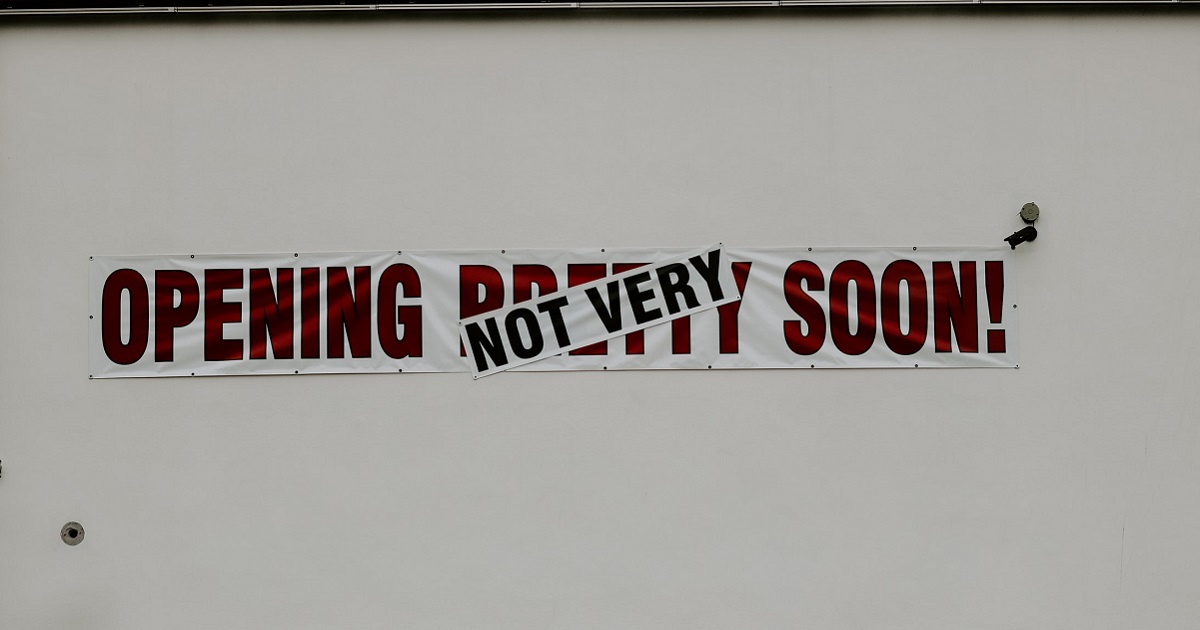Post-pandemic Tips for Startups
During the first WIEF Youth Network’s virtual Idealab 2020 Series, two experts spoke on what support startups need to change and seize opportunities during this post-pandemic period.
On 23 June 2020, a 55-minute virtual session on how to support startups during the post COVID-19 period was discussed by two panelists during the first WIEF Youth Network’s (WYN) Idealab 2020 Series. The online audience hailed from around 30 countries and from various backgrounds. The main thread they shared was the interest in surviving one of the biggest outbreaks, if not the deadliest, of the twenty-first century.
Many would agree that the pandemic hasn’t only given us the opportunity to pause and reflect on how we live as well as do business, but also a catalyst for us to radically change how we live and do business. This pandemic has brought the global economy to its knees, and businesses – big or small – have not been spared. Most, if not all, are in dire need of not only protective measures, but also access to funding to ensure business longevity. The question is, how can they go about achieving this? The answer lies within the two experiences entrepreneurs who were panelists for the session.
Meet the Panelists

Gopi Ganesalingam is the vice president of global growth acceleration at MDEC, a Malaysian government agency tasked to develop the country’s digital economy. Gopi himself is a finance professional and an entrepreneur with several businesses under his belt. He worked for the likes of Matsushita, American Express and Google.

Ebrahim Patel wears many hats but is first and foremost an entrepreneur from South Africa. Currently, he’s the managing director of SiyaXoxa Technologies in Durban and also the Chairman of WYN as well as a member of WIEF Foundation’s International Advisory Panel.
Ebrahim: Agility and Collaboration of Government with Private Sector
Ebrahim gave a brief overview of how dire the current economic situation is. In the last three months, he said, ‘the impact [on the] global economy has been worse than the three years that it took the 2008 crisis.’ The evidence of the negative impact resulted in the projection of a USD30 trillion deficit of global governments by 2023. ‘That’s a huge figure to be contemplating,’ he added. ‘It has forced governments to bring in economic intervention at a very rapid pace to save economies and kickstart them with a USD13 trillion stimulus package across the globe.’
The lockdown had caused schools to shut for months at a time. ‘1.6 billion [students] in 191 countries were affected by the fact that they couldn’t go to school for three months. Now, that in itself means that that impact is going to translate into the next two years as grades can’t progress, unless there’s serious intervention by government[s],’ Ebrahim observed and continued how, ‘We’ve seen greater unemployment than in the time of WWII and 195 million job losses in just two months. That encapsulates some of the issues that we face as a global economy.’
This of course, includes a stagnating manufacturing sector due to dropped demand and its losses. However, Ebrahim saw a silver lining: countries can find where the gaps are in the local manufacturing sector. ‘For me, this is a revolution and it comes out of how entrepreneurs review where we [stand] as startups. How do we move forward? It’s an opportunity to pause. A time for reflection and change the purpose of our business. How do we change?’ asked Ebrahim. ‘[This] is an opportunity to pivot [your] organisation.’ Examples given were international fashion houses making face masks instead of haute couture and F1 racing teams re-engineering processes to make ventilators.
Ebrahim questioned the point of how can businesses and entrepreneurs cultivate agility? What’s more, agility is needed in governments as well. ‘We’re now seeing that there’s a great trend towards government and the private sector, across the globe, working together,’ he said and added, ‘In Africa, we’ve created a procurement portal which all governments on the continent subscribe to. Suppliers can access the portal, see what’s required by the governments and how they’re able to supply. [This] create opportunities for small businesses.’
While you may think that COVID-19 is the end of the world, but Ebrahim concluded, ‘It’s actually the start of the new world. It’s the start of a new way of doing things, new opportunities and [a] little positive message to say that, let’s look for the opportunities that would come out of this adversity.’
Gopi: Going Digital, Borderless and Governmental Efforts
Gopi, rightly, believed that SMEs needed to go digital, ‘When you go digital, you don’t confine yourself to just one country because when you’re on a digital platform you become borderless [and] the whole world is your marketplace. Also, SMEs [must] understand what you’re selling, who your customers are and take advantage of the global markets. I think the future [will be] SMEs servicing the global market. It will be very competitive [which is] good for the consumer. SMEs have to wake up and [realise] the world has changed.’
Once COVID-19 was declared a pandemic, Gopi explained how MDEC rolled out more than 44 different offline to online initiatives and kept in touch with the industry through online dialogue where feedback to understand issues was given and listened to, created a directory of digital resources that were able to address problems and encourage SMEs to switch to e-commerce. ‘We provided a lot of digital thought leadership webinars, where experts from MDEC as well as external ones, advice the industry folks on what can be done,’ he added.
Stimulus packages were born out of these collaborations and dialogues. Currently, according to Gopi, the stimulus package is on how to restart the digital economy. ‘We’ve got tons and tons of programs that are coming up,’ he said. There are 1,616 different types of stimulus packages consisting of training on working from home to tax relief of funding.
Manoeuvring the Post-pandemic Economic Slump: Resilience, Pivot and Mentors
‘It’s a very difficult question,’ Ebrahim admitted. ‘Because each country and society has got different demands [as well] needs. And I think what startups need to have, and this is probably common across [the board], is ability and agility to move with speed, in line with demand as it comes about, [and] to identify where new demand’s coming from.’
Gopi said, ‘[Be] resilient. And it’s about pivoting.’ Also, to lookout for opportunities and seek out mentors. ‘[Talk] to entrepreneurs who went through the 1997 and 2008 crises. How did they overcome it? What made Airbnb [a success]? MDEC creates platforms on which mentors talk to entrepreneurs and on funding. Find a mentor from the same sector as you are. For example, if you’re in logistics, get a mentor who has done logistics before.’
‘Key word to pivot is also collaboration. We’re going to see greater collaboration across verticals and across industries as well. So, I think that if a startup’s looking at resilience. It needs to look at collaboration as well to build that resilience,’ concluded Ebrahim.
Q&A Session: Highlights
Q: Offline and physical sphere are bedrocks for a strong and sustainable economy, should we focus too much on going online without looking for offline solutions?
Gopi: It will depend on customer behaviour which has been altered by the pandemic and the new normal. What’s more, a lot depends on innovation, and again, on pivoting your business model.
Q: How can non-tech business models keep up with a tech-driven business model?
Ebrahim: We’ve seen a blend between online and offline. Still, during lockdown, a number of businesses have been made redundant, such as cinemas and in its place, Netflix increased its subscribers. We binge-watched movies and programs. Also, demand for broadband and connectivity increase to such an extent that even online streaming platforms had to lower stream rates so to cope. So, with increased online platform and broadband, there’s going to be a blend which will also expose redundancies within physical environments such as physical supermarkets.
It’s going to be difficult as tech businesses increase and tech businesses are able to leap frog between platforms and have online presence. Now, it’s a borderless, timeless and moneyless economic system. Unless the non-tech companies can physically contain itself and adjust to consumer demand, it’s going to find greater competition from companies that have adopted the new normal way of conducting business.
Photo by Makenna Entrikin on Unsplash





